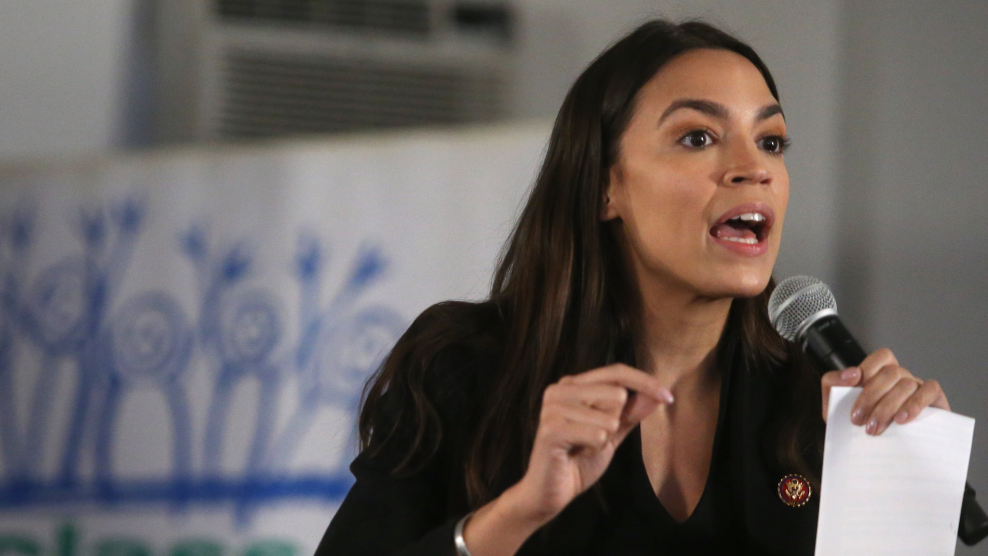Rep. Alexandria Ocasio-Cortez on Tuesday accomplished a rare feat for a Democrat—she appeared to convince a Trump administration official that federal policy should be changed. Specifically the firebrand congresswoman from New York got Housing and Urban Development Secretary Ben Carson to agree that his department’s drug and crime policies should be reformed.
.@RepAOC @AOC asks about One Strike Rule and No-Fault Policy and if Secretary Carson would support moving the policies over to a more holistic/case-by-case review.
@SecretaryCasron: "I'm always in favor of more flexibility." pic.twitter.com/7ze07GqZc9
— CSPAN (@cspan) May 21, 2019
During a House Financial Services Committee hearing, Ocasio-Cortez used her time to ask Carson about HUD’s stringent crime policies that could lead to public housing tenants being evicted.
As part of the War on Drugs in the 1990s, HUD encouraged local public housing authorities to adopt a “one-strike” rule, meaning that any tenant engaging in even minor criminal activity could be grounds for automatic eviction of an entire household. “A person could be stopped and frisked and be found in possession of a small amount of marijuana and then be evicted or have their entire family evicted from public housing,” Ocasio-Cortez noted. The agency also drew up what’s know as a “no-fault policy” that could lead to a family’s eviction from public housing if a guest commits a crime. “An entire family could be evicted for the criminal activity of a guest of the household, even without the knowledge of anyone in that household,” she explained.
Carson responded that the no-fault policy had “been on the books for many, many years” and that its use is “extremely limited.”
“Do you support reversing some of these provisions?” Ocasio-Cortez asked. (While local housing authorities have control over whether or not to enforce those rules, formal guidance from HUD could end them entirely.)
“Which provisions?” asked Carson. When Ocasio-Cortez asked specifically about the no-fault policy, Carson at first said he’d be willing to talk about individual cases if she had any examples to provide. But Ocasio-Cortez pressed on.
“Would you support being able to move some of these policies over to a more holistic review?” she asked. “You yourself asked for a case-by-case consideration. Should that case-by-case consideration be codified in federal law instead of having blanket, one-strike or no-fault policies?”
Carson’s answer suggested he would indeed be open to supporting such a change. “I’m always in favor of more flexibility,” he said.
“I’m happy to hear that,” Ocasio-Cortez said. Moments later, she noted she was introducing housing legislation that would include those reforms.
















